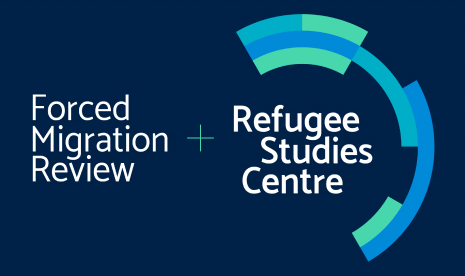Forced Migration Review brings together diverse, knowledgeable authors – especially those with lived experience of forced displacement – to foster practical learning and discussion that can improve outcomes for forcibly displaced people.
For over 30 years, FMR has catalysed dialogue between practitioners, academics and policymakers about emergent issues in migration and displacement.
Our free flagship magazine is accessible to a global audience in English, Arabic, French and Spanish, online and in print. Related audio/visual content is available online.
People fleeing the conflict in eastern Ukraine board a train at Lviv station. Credit UNHCR/Valerio Muscella
FMR prioritises inclusion and impact. Our programmes put these priorities into practice.

Forced Migration Review is a semi-autonomous organisation housed within the University of Oxford’s Refugee Studies Centre. Its flagship magazine, also called Forced Migration Review, was first published in 1987 as the Refugee Participation Network newsletter, and relaunched in 1998 under the current name.
Forced Migration Review is supported exclusively through the generous contributions of our public and private donors. Administrative support is provided by the Refugee Studies Centre and the wider university.
FMR is led by an editorial team comprised of the Managing and Deputy Editors, and supported by an operations team including Outreach, Finance, and Administration.
FMR’s Advisory Board comprises a diverse array of forced displacement experts who provide insight and advice on FMR’s strategic direction and editorial content.
- Lina Abirafeh – Lebanese American University
- Nina M Birkeland – Norwegian Refugee Council
- Jeff Crisp – independent consultant
- Matthew Gibney – Director, Refugee Studies Centre, University of Oxford
- Lucy Kiama – HIAS Kenya
- Khalid Koser – Global Community Engagement and Resilience Fund
- Erin Mooney – UN Protection Capacity/ProCap
- Kathrine Starup – Danish Refugee Council
- Madeline Garlick – UNHCR
- Marcia Vera Espinoza – Queen Margaret University
- Richard Williams – independent consultant
Join the FMR team
Are you motivated to help foster practical learning and discussion to improve forced displacement response? Please consider joining us! FMR particularly encourages people with relevant experience, including lived experience, to apply for currently open roles.
Currently there are no open roles available